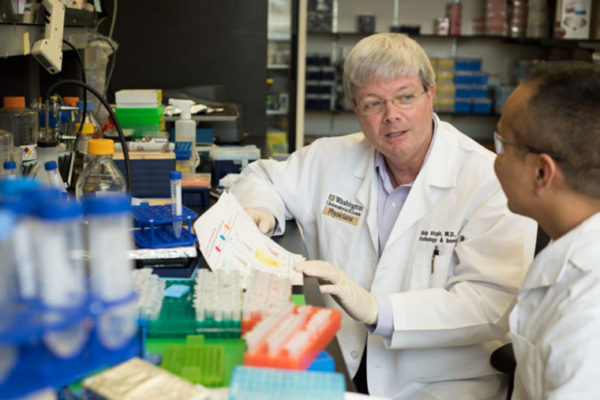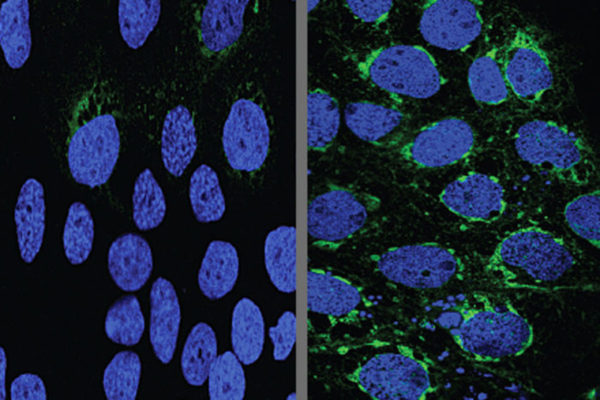Strategy to battle opioid epidemic encourages multilevel approach
Jose A. Moron-Concepcion, associate professor of anesthesiology the School of Medicine, studies the emotional component of pain and opioid receptors. He discusses some of the key points addressed in a new report on opioid abuse issued by the National Academies of Sciences, Engineering and Medicine.
In autism, genes drive early eye gaze abnormalities
New research has uncovered compelling evidence that genetics plays a major role in how children look at the world and whether they have a preference for gazing at people’s eyes and faces or at objects.The discovery by researchers at the School of Medicine and Emory University adds new detail to understanding the causes of autism spectrum disorder.
Surgery for early prostate cancer may not save lives
Part of a major 20-year study, new research provides further evidence that surgery is unnecessary for early-stage prostate cancer, although some men whose disease is further along may benefit.
Washington University Libraries announces winners of book essay competition
Washington University Libraries has announced the winners for the 30th annual Neureuther Student Book Collection Essay Competition.
Strategies for smart decarceration of America’s prisons
With an era of decarceration of America’s prison and jail system quickly approaching, a new book aims at providing solutions and concrete strategies for ushering it in.
The View From Here 7.11.17
Images from in and around the Washington University campuses.
Sleep, Alzheimer’s link explained
Research from Washington University School of Medicine, Radboud University Medical Centre in the Netherlands, and Stanford University shows that disrupting just one night of sleep in healthy, middle-aged adults causes an increase in a brain protein associated with Alzheimer’s disease.
Type 1 diabetes risk linked to intestinal viruses
A new study led by the School of Medicine has found that viruses in the intestines may affect a person’s chance of developing Type 1 diabetes. Children who carried a specific virus belonging to the Circoviridae family were less likely to head down the path toward diabetes.
Malaria drug protects fetuses from Zika infection
Studying pregnant mice, researchers at the School of Medicine found that Zika virus manipulates the body’s normal barrier to infection. They also found that a malaria drug, hydroxychloroquine, interferes with this process, protecting the fetus from viral infection.
Patti receives 2017 Agilent Early Career Professor Award
Gary J. Patti, associate professor of chemistry in Arts & Sciences at Washington University in St. Louis, has received a 2017 Agilent Early Career Professor Award. The honor includes a $100,000 research award and is given to those who have made “significant original research contributions” and have “outstanding potential for future research.”
View More Stories









